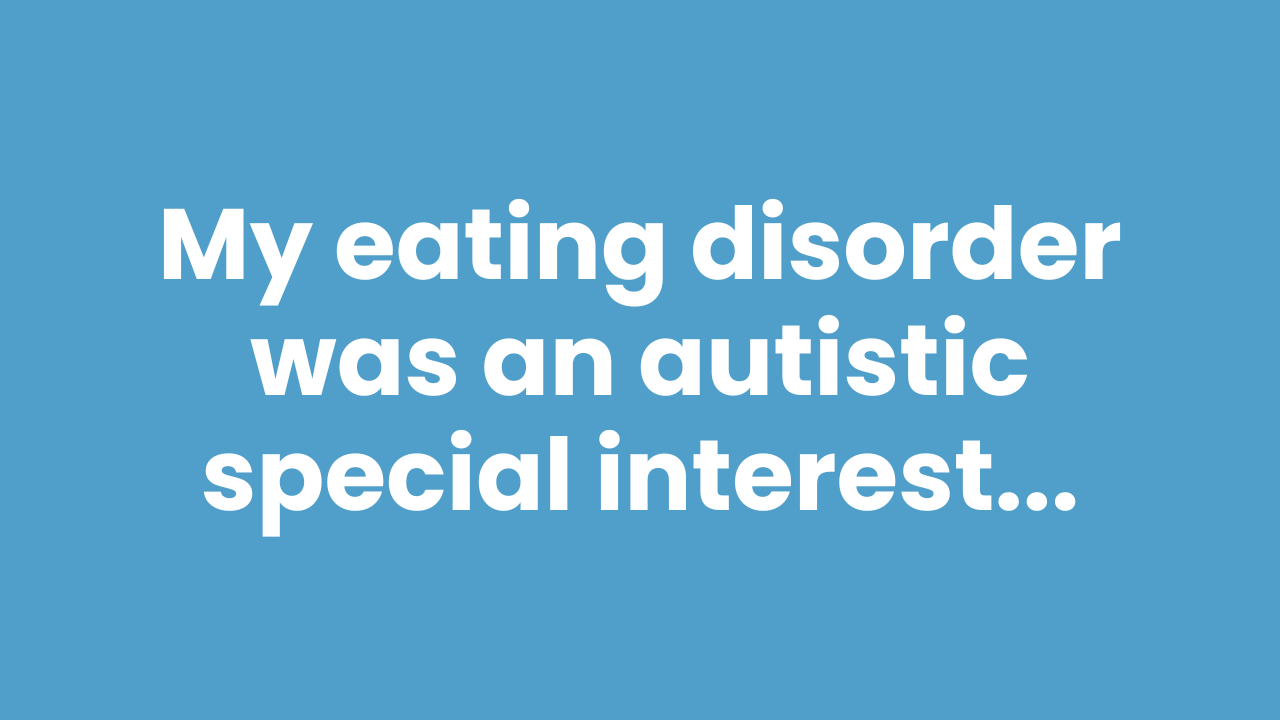My eating disorder was an autistic special interest...
Aug 29, 2023
How can an eating disorder become an autistic special interest? In this post, I share how I became obsessed with food and exercise without knowing I have autism.
What is a special interest?
Before explaining how my eating disorder was an autistic special interest, it’s important to understand what the term “special interest” even means, as I know not everyone may be familiar with it!
A special interest refers to a topic or activity that an autistic person is highly passionate about or has increased focus for. Some stereotypical special interests of autistic people are trains, mathematics, and dinosaurs. Just as all interests or passions, an autistic special interest goes beyond the stigmatizing representation of the condition. For example, when I was little, some of my special interests were reading about cancer and World War II (yes, when I was little).
A “healthy” special interest
When I started learning about health and nutrition at the age of eleven, “health” became a special interest of mine. I wanted to become the epitome of health by eating only “clean” and doing the “perfect” amount of exercise. My literal thinking caused me to develop fears around eating sugar (I believed I would develop diabetes) and exercising less (I believed I would become ob*se).
My obsession for being healthy quickly spiraled into a full-blown eating disorder, which eventually became a special interest in and of itself.
For years, my entire life revolved around the eating disorder. I constantly thought about what, when, where, and how I would eat and move. I constantly compared my behavior to others. I became upset when others ate less because I believed I would then also have to eat less.
It was never about being thin
I was forced in and out of eating disorder treatment for years. I was told I had “poor self esteem” and that I needed to improve my body image. I was told that in order to recover, I needed to “learn to be more flexible” and to accept the way I looked in the mirror.
But my eating disorder was never about the way I looked. It was about the way I felt. My eating disorder made me feel safe. Because of the predictability and security my eating disorder provided me, all the attempts to get rid of it only made me cling to it more.
In this sense, a critical aspect of my recovery and journey to freedom was acknowledging and accepting the purpose the ED served. It wasn’t good, but it also wasn’t bad. Attaching morality to any external circumstance allows it to hold power, which is exactly what you need to remove if you want it to stop having power over you.
Letting Go
There came a time when I realized my obsession with health was the opposite of healthy. Sure, it was serving a purpose, but I no longer wanted it to serve this purpose. The keyword here is want. You can only let go of something if you truly want a different life.
Now, my question to you is: what life do YOU want and what do you need to do to achieve that life?
P.S. If you’d like my help in achieving that life, I would be absolutely honored. Apply for 1-1 coaching here to learn more about working together!




